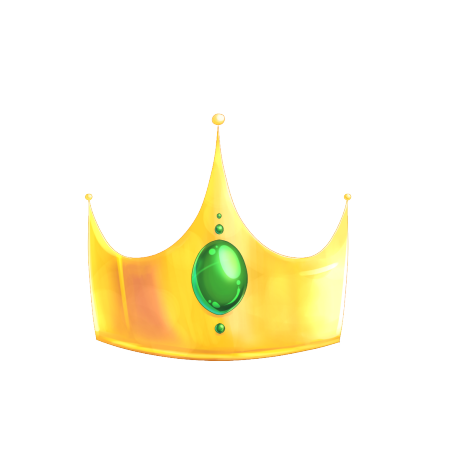A nickel metal hydride battery (NiMH or Ni–MH) is a type of rechargeable battery. The chemical reaction at the positive electrode is similar to that of the nickel–cadmium cell (NiCd), with both using nickel oxide hydroxide (NiOOH). However, the negative electrodes use a hydrogen-absorbing alloy instead of cadmium. NiMH batteries can have two to three times the capacity of NiCd batteries of the same size, with significantly higher energy density, although much less than lithium-ion batteries.
A lithium polymer battery, or more correctly lithium-ion polymer battery (abbreviated as LiPo, LIP, Li-poly, lithium-poly and others), is a rechargeable battery of lithium-ion technology using a polymer electrolyte instead of a liquid electrolyte. High conductivity semisolid (gel) polymers form this electrolyte. These batteries provide higher specific energy than other lithium battery types and are used in applications where weight is a critical feature, such as mobile devices, radio-controlled aircraft and some electric vehicles.
The Lithium Battery Packs are modular and expandable and therefore can be adjusted for your application in industries like logistics, agriculture and others.
Cylindrical Battery consist of sheet-like anodes, separators, and cathodes that are sandwiched, rolled up, and packed into a cylinder-shaped can. This type is one of the first mass-produced types of batteries and is still very popular. These cells are suited for automated manufacturing.
Low Temperature Battery is a cold-weather performance battery, and the discharge capacity of Low temperature battery is up to 80% at 0.2C ratio under -40℃.
High Temperature Battery ensures a significantly longer battery cell life at 75 °C until a remaining capacity of 80% is reached. In addition, the cell technology is able to remain available as a rechargeable battery cell for a longer period of time even at exceptionally high temperatures.
A high rate battery generally refers to a lithium battery, and a lithium-ion battery is a high-charge battery that relies on lithium ions to move between a positive electrode and a negative electrode to operate.
Ultra thin battery is a lithium ion polymer battery with a thickness of less than 1.5mm. With long years of experiences on custom special battery,Padre can design and produce variety of ultra thin battery which ranges from 0.4mm to 1.5mm.
LiFePO4 batteries are best known for their strong safety profile, the result of extremely stable chemistry. Phosphate-based batteries offer superior thermal and chemical stability which provides an increase in safety over lithium-ion batteries made with other cathode materials. Lithium phosphate cells are incombustible, which is an important feature in the event of mishandling during charging or discharging. They can also withstand harsh conditions, be it freezing cold, scorching heat or rough terrain.
A typical alkaline dry battery has a zinc anode and a manganese dioxide cathode. The electrolyte is a non-acidic basic paste. A typical electrolyte used in alkaline batteries is potassium hydroxide.
A lithium polymer battery, or more correctly lithium-ion polymer battery (abbreviated as LiPo, LIP, Li-poly, lithium-poly and others), is a rechargeable battery of lithium-ion technology using a polymer electrolyte instead of a liquid electrolyte. High conductivity semisolid (gel) polymers form this electrolyte. These batteries provide higher specific energy than other lithium battery types and are used in applications where weight is a critical feature, such as mobile devices, radio-controlled aircraft and some electric vehicles.
The Lithium Battery Packs are modular and expandable and therefore can be adjusted for your application in industries like logistics, agriculture and others.
Cylindrical Battery consist of sheet-like anodes, separators, and cathodes that are sandwiched, rolled up, and packed into a cylinder-shaped can. This type is one of the first mass-produced types of batteries and is still very popular. These cells are suited for automated manufacturing.
Low Temperature Battery is a cold-weather performance battery, and the discharge capacity of Low temperature battery is up to 80% at 0.2C ratio under -40℃.
High Temperature Battery ensures a significantly longer battery cell life at 75 °C until a remaining capacity of 80% is reached. In addition, the cell technology is able to remain available as a rechargeable battery cell for a longer period of time even at exceptionally high temperatures.
A high rate battery generally refers to a lithium battery, and a lithium-ion battery is a high-charge battery that relies on lithium ions to move between a positive electrode and a negative electrode to operate.
Ultra thin battery is a lithium ion polymer battery with a thickness of less than 1.5mm. With long years of experiences on custom special battery,Padre can design and produce variety of ultra thin battery which ranges from 0.4mm to 1.5mm.
LiFePO4 batteries are best known for their strong safety profile, the result of extremely stable chemistry. Phosphate-based batteries offer superior thermal and chemical stability which provides an increase in safety over lithium-ion batteries made with other cathode materials. Lithium phosphate cells are incombustible, which is an important feature in the event of mishandling during charging or discharging. They can also withstand harsh conditions, be it freezing cold, scorching heat or rough terrain.
A typical alkaline dry battery has a zinc anode and a manganese dioxide cathode. The electrolyte is a non-acidic basic paste. A typical electrolyte used in alkaline batteries is potassium hydroxide.











